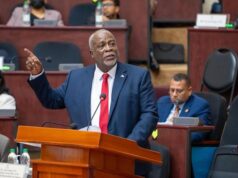By Kemol King
What do you do when you’ve tried and tried again, and you still don’t succeed? Dr Ato Kenya Rockcliffe, once expelled from school and seemingly adrift, turned misfortune into a teaching legacy. This is a story of how he went from being a boy on Albouystown’s simple streets, to an esteemed lecturer in the hallowed halls of the University of Trinidad and Tobago (UTT).
In his exclusive interview with Guyana Standard, Dr Rockcliffe speaks of the Albouystown community where he grew up, with great affection. “I am who I am because people love me; my parents, friends, family, even strangers,” he said.
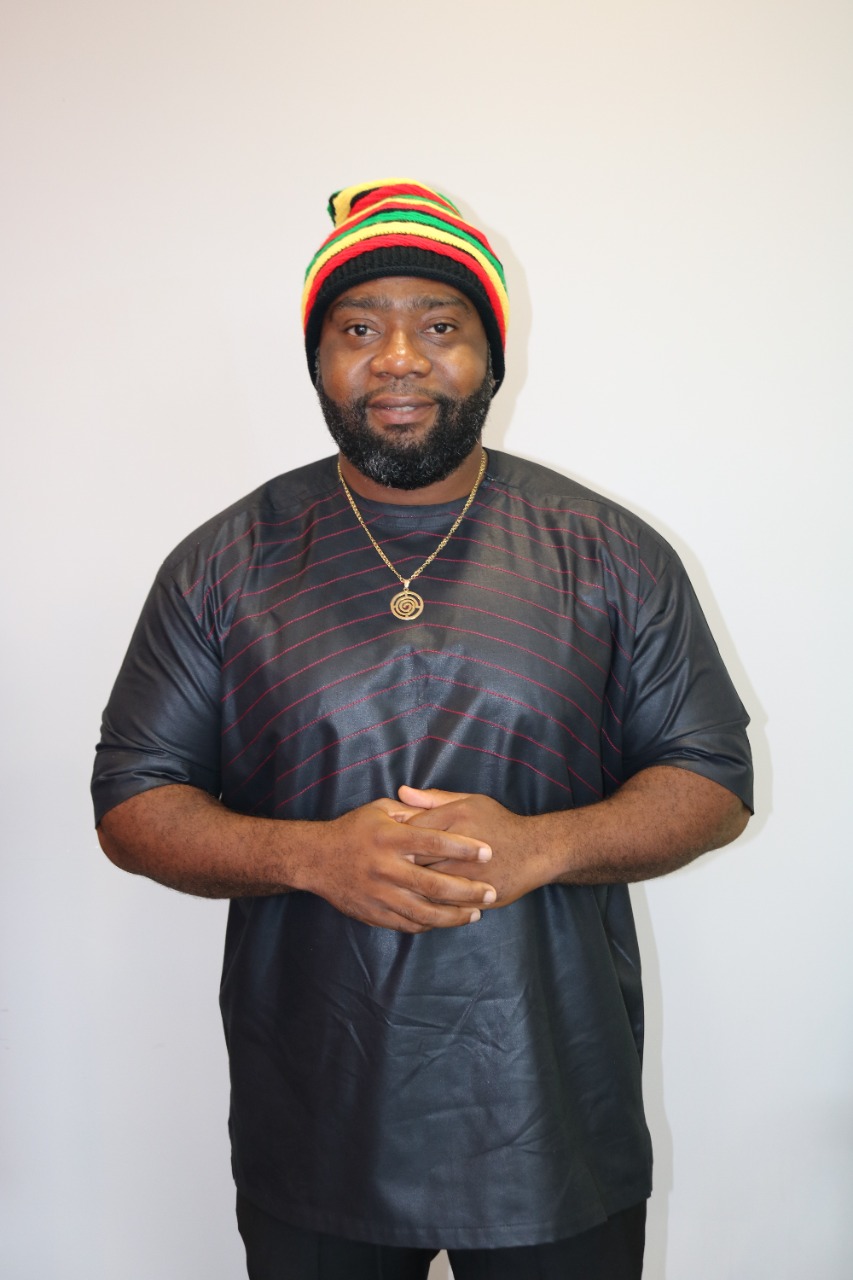
But high school gave him one of the great setbacks of his life, in a way that could have sent him on a downward trajectory.
“I couldn’t pass first form,” he recounted. “I did first form twice and then they asked me to leave.”
This experience, he keenly clarified, was not due to a lack of support or a struggling family background, as was the case for a few of his friends at the time. Rather, for the youngster, a lack of focus was to blame, and the teenage struggle to find himself. But this challenge became the unlikely soil from which his dedication to education sprouted.
After being expelled from Central High, Dr Rockcliffe spent time working as a porter with a friend who owned a horse cart, before his uncle, Kenneth Rockcliffe, intervened and enrolled him in the Adult Education Association.
This organization provides a second chance for those who struggled in traditional educational settings. “I think there is where my vocation for teaching started,” Dr Rockcliffe recalled. His role in assisting slower students, and sometimes even being left in charge by the teachers, ignited a passion that would shape his future career.
Dr Rockcliffe then moved on to Critchlow Labour College to complete his secondary school education, qualifying himself for admittance to the University of Guyana (UG).
After attending UG and graduating by the age of 20, Dr Rockcliffe initially aimed to study Social Statistics and Demography in England. However, an interplay of financial constraints and family expectation rendered that route infeasible.
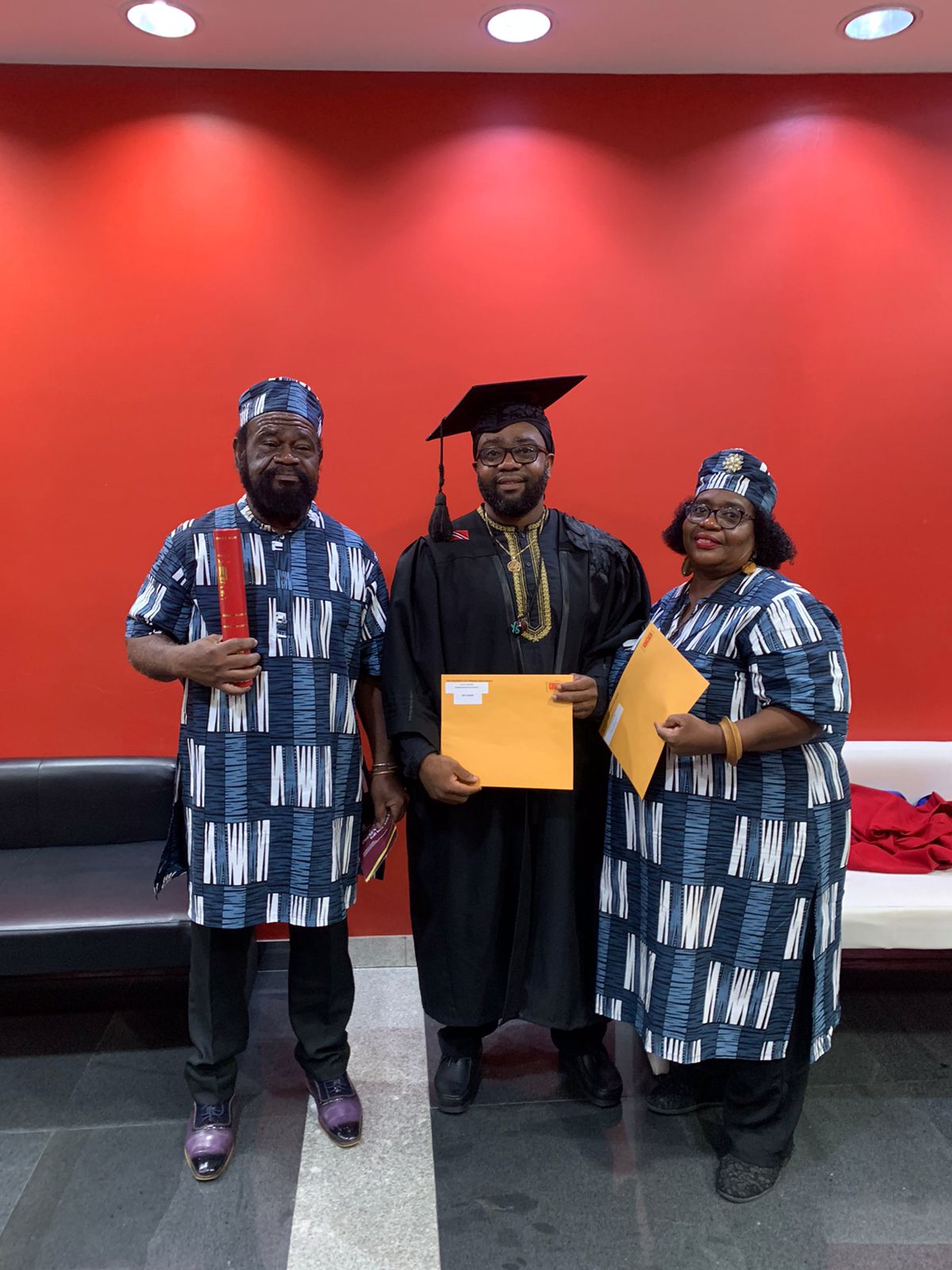
He ended up enrolling in the University of the West Indies (UWI) to read for a Master’s Degree in Sociology, before switching to UTT. He had, while at UWI, been involved in an internship with the Trinidad and Tobago Alliance for Sports and Physical Education, which nurtured his love for sport. The switch to UTT landed Dr Rockcliffe a Master’s Degree in International Sport for Development.
He had found a programme that combined his interests in sociology and physical education. “I thought that was a smart move because it’s creating a niche,” he said. This led to Dr Rockcliffe’s employment at the university as a teacher.
For his PhD, Dr Rockcliffe’s dissertation was ‘An Exploration of The Possible Influence of the Academy of Sport’s Socialisation Process on the Employability Confidence of its Graduates and the Cultural Domain of Graduateness.’ In this context, the sociologist regards graduateness as the essence of being a graduate. This concept, he believes, embodies intellectual maturity and an ability to critically engage with the world—qualities not exclusive to university graduates.
Six years after commencing his doctoral study and 358 pages later, he reached a new level of his own graduateness, becoming Dr. Ato Kenya Rockcliffe.
His teaching philosophy is deeply influenced by his belief in the importance of community and mutual support. Teaching, for Dr Rockcliffe, is not just a profession but a vocation—a way to reciprocate the love and support he received throughout his life. “It’s what makes me happy. It’s what makes me feel like I’m useful.”
Since joining UTT in 2010, Dr Rockcliffe has impacted numerous students through his courses in sociology, ethics, and sport for development. He is known for his engaging and disruptive teaching practice, which often attracts students from other disciplines. “I’m in the academy but not of the academy,” he explained.
One of the profound philosophies that Rockcliffe imparts to his students is the metaphor of “learning how to die,” which he uses to describe the importance of challenging long-held beliefs to foster personal growth. He explained, “When I talk about learning how to die, I’m talking about the daily death of dogma, presuppositions, challenging your former convictions, coming up with new ones, trying to live in integrity, decency, and honesty.”
Dr Rockcliffe believes that by embracing this process, individuals can develop a deeper understanding and compassion for others, ultimately leading to a more just society. This concept is central to his teaching, as he strives to instill in his students, the ability to critically evaluate their own beliefs and be open to new perspectives. “I believe, if I can engage my students in a way that they become connected to a tribe, but not so beholden to that tribe that they are impervious to reason, I’ve done a good deed. Because when we are impervious to reason, wars are easier to start, killings are easily perpetuated because we cannot discourse…”
Dr Rockcliffe’s approach to teaching is also rooted in connecting with students on a personal level before correcting them. “Connect before you correct,” is one of his many guiding principles.
He also identifies with the Ubuntu philosophy, which exemplifies mutual dependence and collective growth. He conveyed that what is most rewarding for him is watching the personal development of his students. He explained that while their academic qualifications are good, it is their growth that counts as the real graduation.
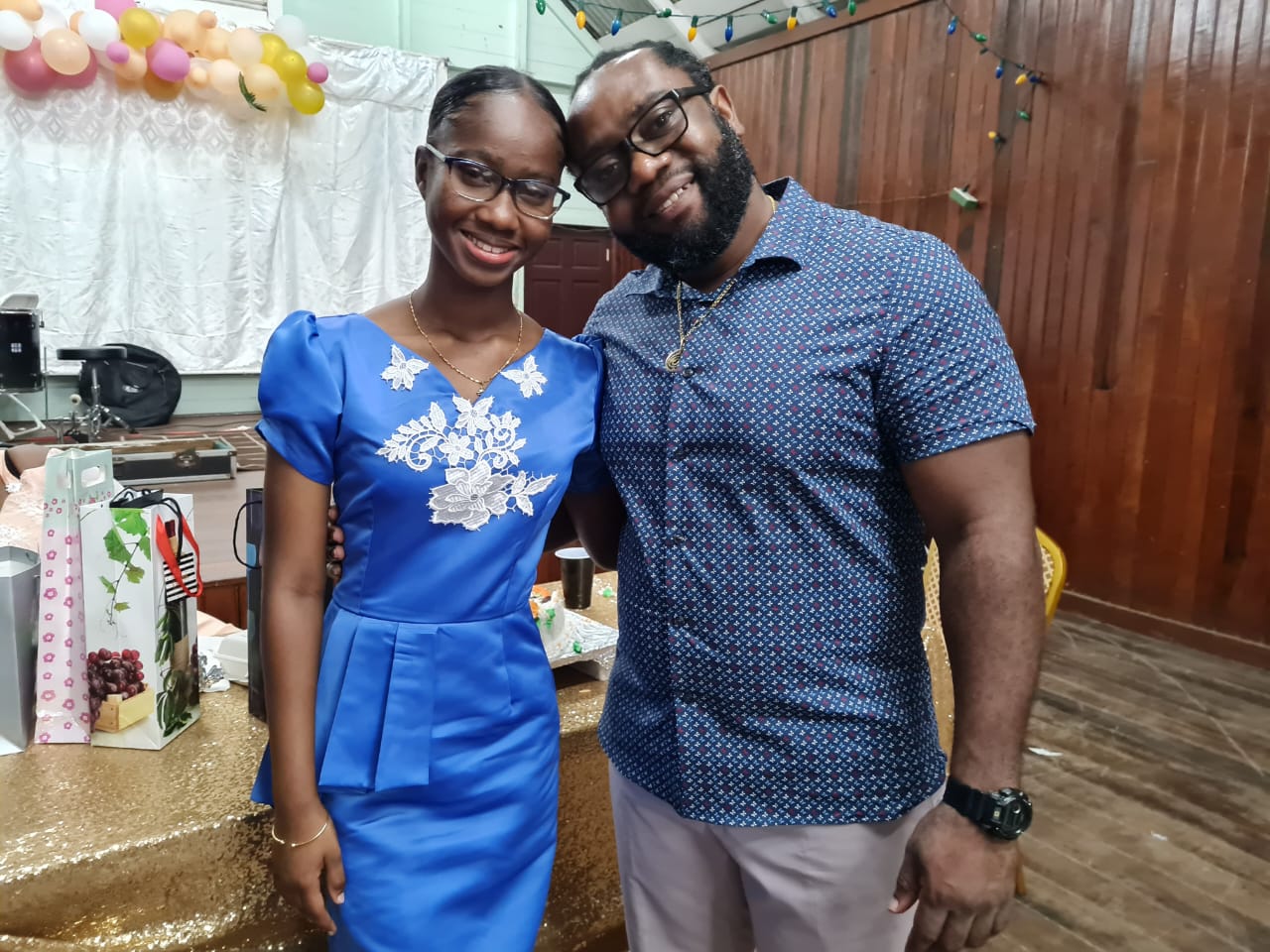
Additionally, Dr Rockcliffe mentioned mentors who have shaped his approaches, including to education and personal development. Jay Mafukidze, a Canadian scholar with extensive work in Southern Africa, was instrumental in instilling the Ubuntu philosophy in Dr Rockcliffe. “She had a gentle, compassionate, merciful personality about her,” Rockcliffe said, adding, “and it caused me to wrestle with what it really means to be just.”
While at Critchlow, he met Professor Harold Lutchman, one of several mentors. Known for his integrity and commitment to public service, Lutchman taught Dr Rockcliffe the importance of timing when speaking truth. “He used to tell me, he said you praise in public and you criticize in private when people are dear to you…”
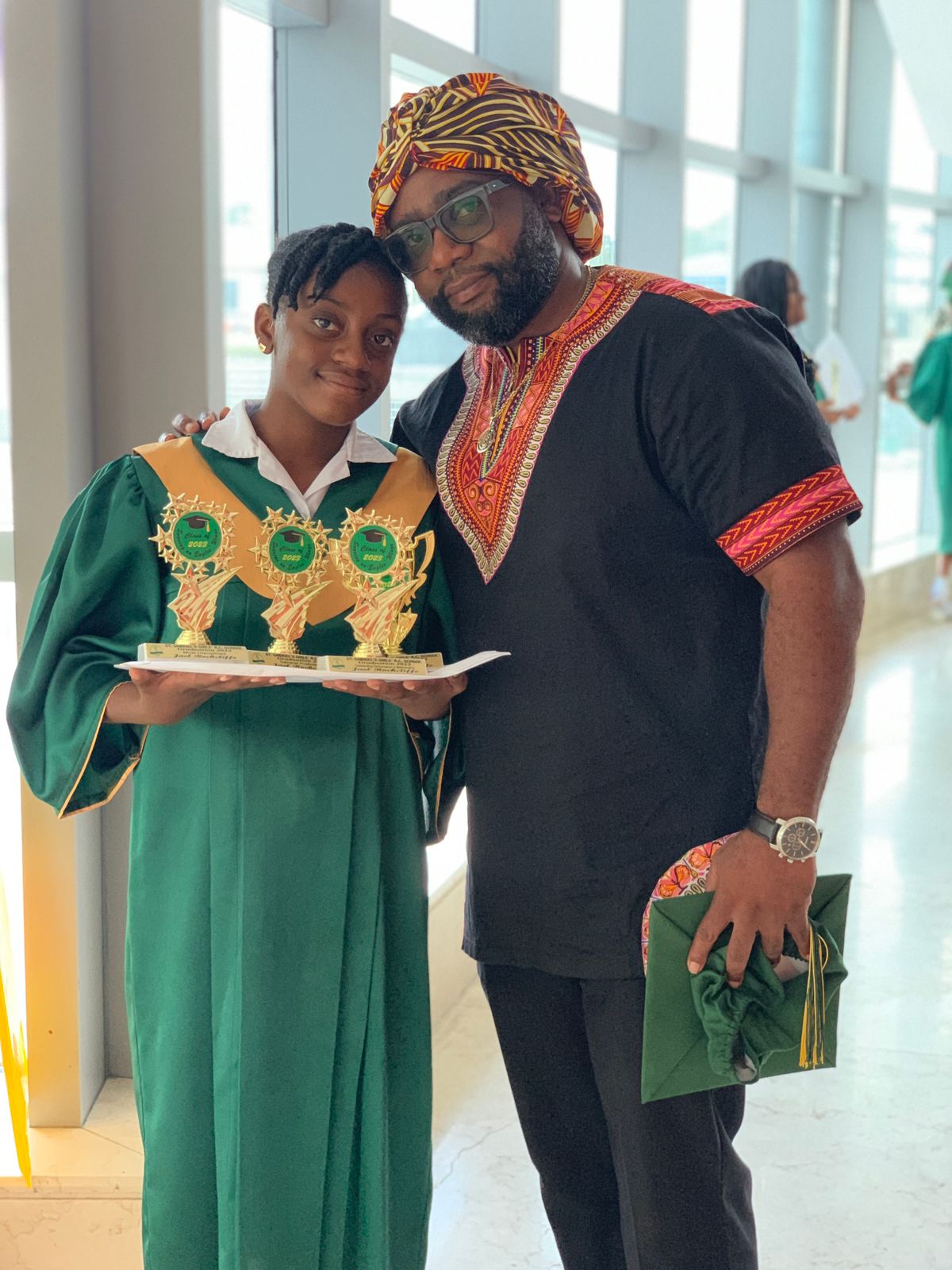
Dr Rockcliffe also credited his uncle, Robert Wilburg, as an academic mentor, particularly for helping him bridge the learning gap that led to him pass secondary school english. Importantly, Wilburg (ever the promoter of learning) continued to motivate Rockcliffe in his academic pursuits. Wilburg encouraged him to believe in his ability to serve as an educator at UTT and to have an appreciation for the social and philosophical aspects of sport.
Another mentor, Dr. Maud Bullen McKenzie, helped Dr Rockcliffe raise funds for his education. He had met her at a conflict resolution workshop she held on behalf of a United Nations organization, and after learning of Dr Rockcliffe, recognised his talent as worthy of investment.
Further, Dr Rockcliffe espouses teachings of late historical figures, including German philosopher Immanuel Kant and American theologian Reinhold Niebuhr. He is also influenced by the advocacy and scholarship of the late Guyanese historian and activist, Dr. Walter Rodney, among other Caribbean scholars.
The impact of Rockcliffe’s parents and siblings has been profound and enduring, shaping his values and approach to life. His mother’s dedication is particularly memorable. During economically challenging times, he recalled that she painstakingly copied a textbook by hand for him, in support of his education. “My mom, she is the warrior. She would sacrifice so much for me,” Dr Rockcliffe recounted.
His father also played an equally important role, providing encouragement and unwavering belief in his potential. “When you’re ready, you’re going to tear them up,” his father would say.
Dr Rockcliffe’s siblings, especially Abena and Zawdie, have also been major influences. They embody qualities of candor and truthfulness that he deeply admires. “If I really want to know what somebody thinks about me, I can speak with them.”
As a father, Dr Rockcliffe hopes to pass on his values to his two daughters. He wants them to see him as a kind and available person, with integrity and compassion. He promotes reading and thinking critically, believing that these habits are crucial for personal and intellectual growth. “Thinking is the mind’s way of having a conversation with itself,” he said. This inner discourse, Dr Rockcliffe sees as vital for killing harmful ideas and fulfilling the need to stay grounded. He presented this need against a backdrop of influences like social media, which he described as a “weapon of mass distraction.”
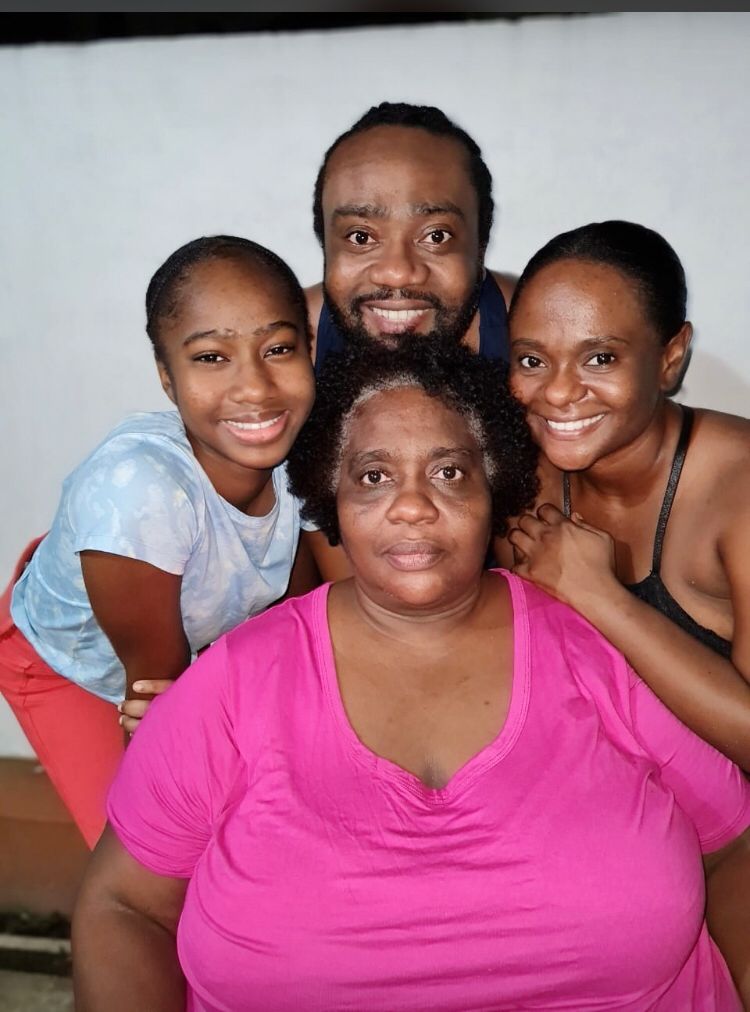
Despite his achievements, Dr Rockcliffe is a humble and self-critical man, striving to be conscious of his own flaws and the constant need for growth. “I’m an obnoxious, flawed, fallen creature that is just trying to love my crooked neighbor with my crooked heart,” he said, paraphrasing American scholar Cornel West, another of his influences.
For young people who connect with some aspect of his story, Rockcliffe’s message is clear: “Give yourself a chance… you are a force of an individual.”


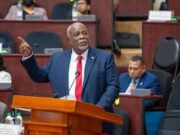

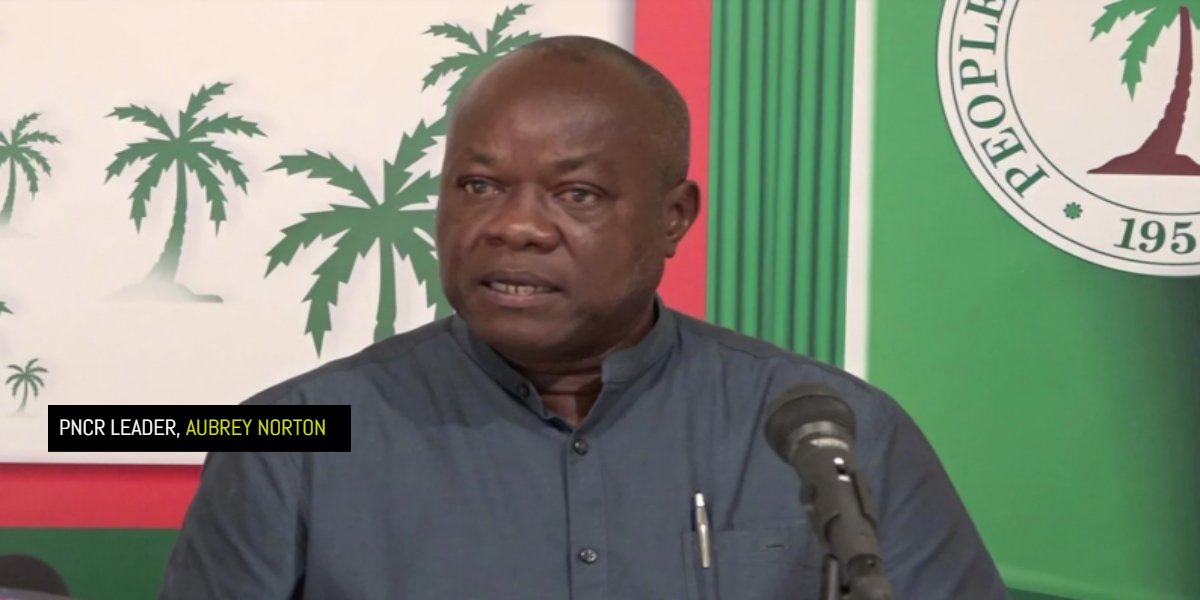


![[BeFunky patch_ogddwpxj8g] SENIOR DIRECTOR OF INVESTMENT AT THE GUYANA OFFICE OF INVESTMENT (GO-INVE (1)](https://www.guyanastandard.com/wp-content/uploads/2024/06/BeFunky-patch_ogddwpxj8g-SENIOR-DIRECTOR-OF-INVESTMENT-AT-THE-GUYANA-OFFICE-OF-INVESTMENT-GO-INVE-1-820x580.png)


